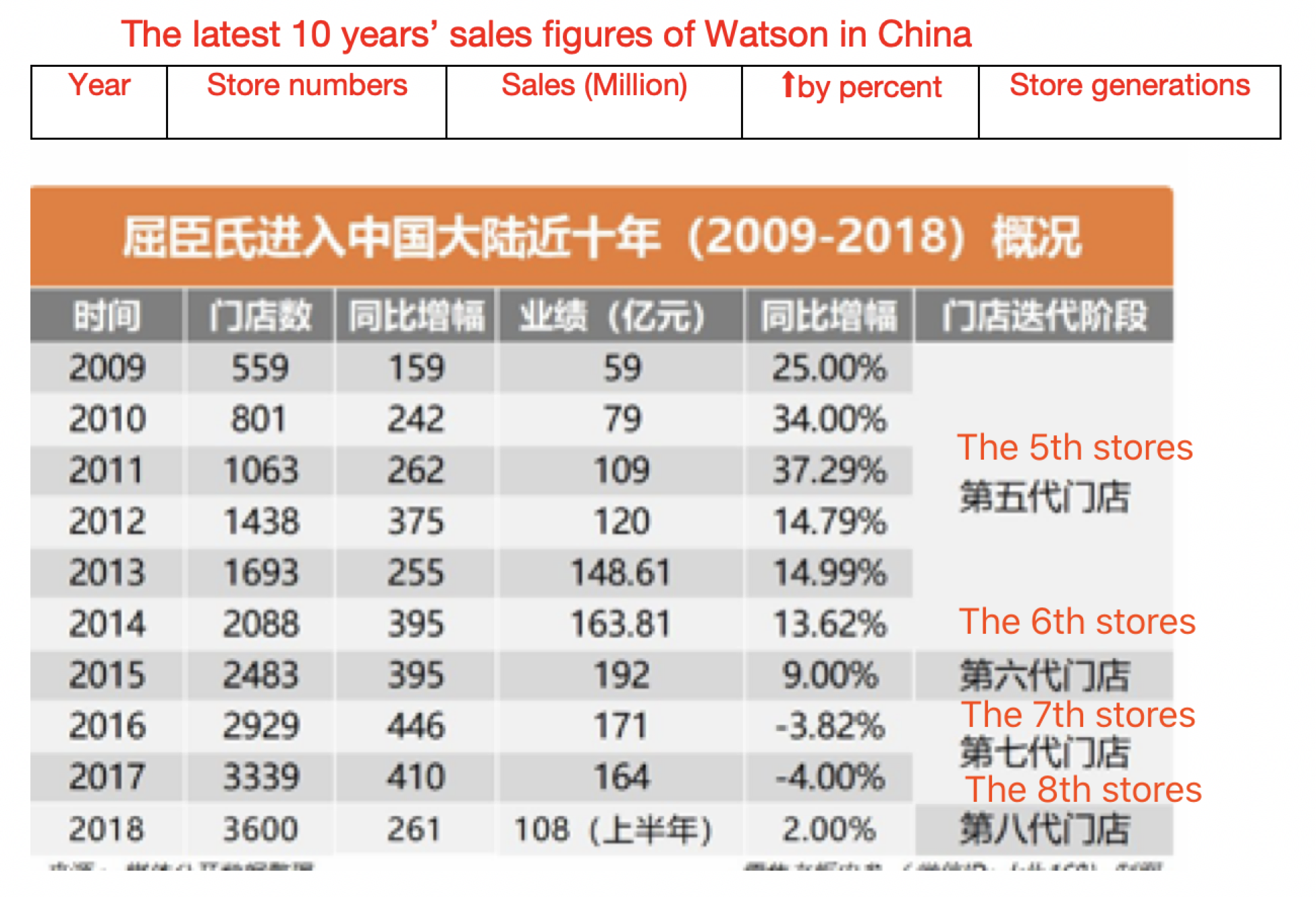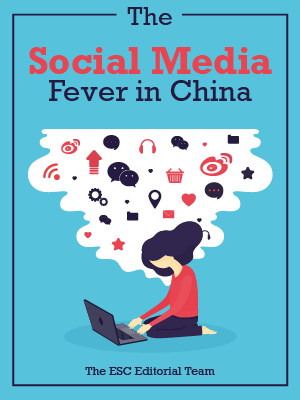Ecommercestrategychina.com uses cookies and other technologies to provide you a better browsing experience. You can get more information regarding the use of cookies, or decline it whenever by clicking Privacy Policy. By using this site or clicking “Okay”, you give us the consent to the use of cookies.
OKAY
Chinese tech giants Tencent and Alibaba are contemplating bids for a stake in Watson, Asia’s largest health care and beauty chain, owned by Temasek Holdings.
The Singapore investment company is considering selling a 10% stake in Watson for around $3 billion. This represents less than half of its 25% holding, which was acquired in 2014 for $5.6 billion. It is rumoured that Tencent could join forces with some investment funds for an offer, and Alibaba is also showing interest. Why is Watson worthy of two giants’ interest and how can it boost their new retail business?
Outline:
I. Watson’s development in mainland China over the past 30 years
II. The problems Watson has encountered
III. The benefits for the tech giants to invest in Watson
I. Watson’s development in China mainland over the past 30 years
Compared with the rapid growth 30 years ago, when Watson first entered the Chinese market, its performance since 2015 has been disappointing. Revenues in the Chinese market were negative for the first time in 2016, down by 4%, and same-store sales by 10%. The figure continued to decline by 4.3% in 2017.
In the face of the slowdown, Watson has attempted to adjust its strategy both internally and externally. The improvement was in four aspects. First, the improvement of the store concept and style by region, instead of adopting a uniform store style and positioning the outlets as “Generation Young”. Also, Watson has created space for the skin test and make-up try-on service and added counters for perfumes. Second, the enhancement of brand identity by increasing imported and exclusive high-end products. Third, the exploration of the digital presence. Watson had started late with its e-commerce footprint when the dividend was almost negligible.
In 2017, Watson launched an online shopping app focused on questions and answers about beauty and make-up. All online orders are executed and delivered by the nearest physical store. Besides, Watson has affiliated its membership system with Tmall’s to stimulate online purchases. The following year, Watson updated the website with three new sections: Health, Global Shopping, and Membership. In addition, the upgrade program for VIP membership was introduced two months later.
At the same time, it has partnered with Eleme to provide a one-hour delivery service and opened a store for Waston+, an affiliate brand, with Yanxuan, NetEase’s online marketplace. Fourth, acceleration of monetisation in online traffic. Watson has over 28 million followers on its official WeChat account and on Weibo and has also made enormous KOL resources available for its social media campaign. It is now considering to convert this valuable traffic into real benefits.
The work has indeed borne fruit. By the first half of 2018, sales and the number of stores had increased by 10% - 16%.

II. The problems Watson has encountered
Watson’s flagship brands are well represented, ranging from healthcare to skincare and cosmetics. However, more and more similar distribution channels of branded products are posing a threat to Watson, such as Tmall, JD and Xiaohongshu in the online space and Mannings, Sephora in the offline area. In addition, Watson experienced an increasing dissatisfaction of consumers.
According to media research, the four main reasons consumers are reluctant to shop at Watson are the following:
i) being disturbed by shopping guides who follow customers while they are shopping to promote self-produced products;
ii) miscellaneous brand categories;
iii) high prices, compared with Miniso, a Chinese low-cost retail chain;
iv) excessive promotion even at the counter.
Despite the negative growth, Watson achieved a surprisingly rising profit margin. This was because, on the one hand, Watson has exclusive rights to some foreign brands and can increase profits by setting a higher price. On the other hand, Watson charges the brands it works with a high commission, up to 35% of their sales. The tensions between Watson and suppliers have existed for a long time.
Currently, Watson is dedicated to offline expansion in third-and-fourth-tier cities, where demand for consumption is increasing. Several factors, such as high operation costs, outdated marketing, brand ageing, poor service as well as the failure to catch up with e-commerce trends, have led to Watson’s dilemma in mainland China.
However, the 30-year development has made Watson a significant material asset. It has 15,000 retail outlets worldwide, mainly in Europe and Asia, and that is precisely what Alibaba is interested in. Its broad brand category, with emphasis on skincare and cosmetics, also fits into Tencent’s new strategy for Industrial Internet 2019.
III. The benefits for the tech giants to invest in Watson
To better understand the motivation of Chinese tech giants to vie for a stake in Watson, let’s take a look at their New Retail investments in 2018.
In April 2018, Alibaba signed a strategic partnership with Huitongda, an e-commerce platform that specialises in the Chinese rural market to improve its logistics capabilities in remote areas of the country. After two months, Alibaba invested $300 million in Xiaohongshu, a social app for users seeking to provide shopping and travel information, and announced a major collaboration with Babytree, a leading online parenting platform.
Watson, with its accumulative advantage in cosmetics retail, will help Alibaba capitalise on the growing demand of the “lipstick economy”, where cosmetics are on the rise and male makeup, cosmeceutical and mother-infant products are also seeing great opportunities.
Tencent is also pouring money into this offline acquisition war. A number of investments in vertical areas such as social e-commerce (拼多多Pinduoduo), second-hand transactions (转转Zhuanzhuan) etc. revealed the shift from business to consumers to companies. It is trying to take advantage of a number of powerful tools that WeChat offers. Unlike Alibaba, which aims to build a retail empire and thus lead the future of commerce, Tencent expects to translate these efforts into traffic and engagement for its established social network.
Please Login to add comments.

$9.99 $19.98

$9.99 $19.98
By GRLpGpAG December 7th, 2023
555
By GRLpGpAG December 7th, 2023
555
By GRLpGpAG December 7th, 2023
555
By GRLpGpAG December 7th, 2023
WT8ENU0H
By GRLpGpAG December 7th, 2023
-1 OR 2+673-673-1=0+0+0+1 --
By GRLpGpAG December 7th, 2023
-1 OR 2+453-453-1=0+0+0+1
By GRLpGpAG December 7th, 2023
-1' OR 2+501-501-1=0+0+0+1 --
By GRLpGpAG December 7th, 2023
-1' OR 2+625-625-1=0+0+0+1 or '9nMMxXdP'='
By GRLpGpAG December 7th, 2023
-1" OR 2+721-721-1=0+0+0+1 --
By GRLpGpAG December 7th, 2023
if(now()=sysdate(),sleep(15),0)